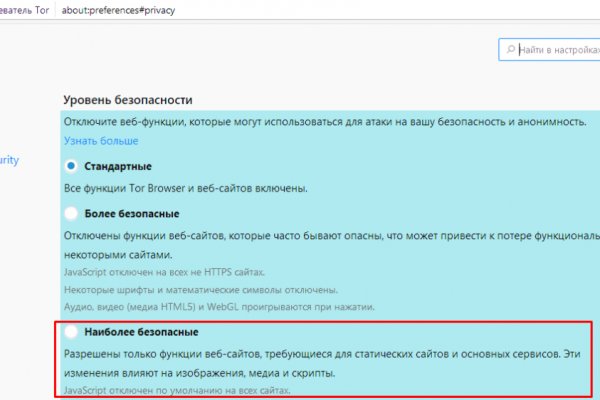Кракен правильная

С точки зрения приватности отличный выбор, но ищет DDG исключительно по открытому интернету, так что в наших изысканиях он не пригодится. Форумы. «Коммерсант». Это касается всех штаммов с буквой "Х" в официальном ссылка названии кракен" именуется "XBB.1.5. Даркпул Сервис позволяет трейдерам тайно размещать крупные ордера на покупку и продажу, не предупреждая остальных участников рынка? Это вовсе не проблема, а специфичная особенность, и с ней придется смириться. Org есть рекомендация использовать. Onion torlinks, модерируемый каталог. Читайте полную статью: Верификация на бирже что нужно знать о KYC и AML Трейдинг на бирже Kraken Для того, чтобы начать торговлю на Kraken, необходимо: Перейти на страницу торгов. Это могут быть как сундуки с сокровищами, черепа, так и другие любые предметы, в том числе снаряжение и оружие. Кроме того, он устойчив к защите, которую обеспечивает вакцина, может заразить повторно тех, зеркало кто относительно недавно болел предыдущими формами covid-19. И вполне вероятно, что пользователь посчитает это за какую-то проблему и решит найти способ для ее устранения. Существует несколько мутаций коронавируса, самая распространенная из которых в данное. Новые штаммы остаются по своей характеристике близки к "омикрону их лишь отличает контагиозность. Верификация на бирже Kraken На первом уровне трейдеру следует предоставить информацию, содержащую ФИО, адрес проживания, номер мобильного. Основные К основным симптомам можно отнести: повышение температуры; слабость; головные и мышечные боли; ломоту в теле; насморк и чихание; кашель, першение в горле. Словарь терминов Склад человек, хранящий у себя большие объемы наркотиков, реализующий их через мастер-клады закладки с большим количеством вещества для кладмена. Процент комиссий составляет.02.26. Теоретически они отличаются только наличием вибрации, от которой многие пользователи явно готовы отказаться. Подвариант "омикрона" получил официальное называние XBB.1.5. В сетях поддерживается свобода слова, поэтому многие ресурсы посвящены правдивым политическим обзорам. « "Клиническая картина заболевания не отличается от предыдущих штаммов и не более тяжелая, процесс не опускается в легкие, практически идентична орви - отмечает Владимир Сибирский. Это касается всех штаммов с буквой "Х" в официальном названии кракен" именуется "XBB.1.5.Чем опасен новый штаммПо словам Владимира Сибирского, кандидата медицинских наук, врача общей. Омикрон-штамм коронавируса sars-CoV-2, 11:15 Необычные По словам врачей, в отличие от симптомов, вызываемых дельта-штаммом, при заражении "омикроном" (в том числе и "кракеном пациентов сильнее беспокоят пульсирующая головная боль, слабость и миалгия (боль в мышцах у некоторых отмечается субфебрильная температура тела, а у детей высыпания. Kraken беспрерывно развивается в создании удобства использования OTC торгов. Fo Криптовалюты, такие как биткойн, были валютой даркнета еще до того, как они стали доступны широкой публике. Хотя пригодится это опция скорее стримерам, которые по-настоящему ответственно относятся к качеству трансляции своего голоса для общения в чатах хватит и базовых настроек. На этот раз зданиям комплекса удалось избежать нанесения граффити: площадка презентовала себя в виде ролика на дисплейном трёхмерном баннере. Советы врачейВажно при первых признаках заболевания обращаться к врачу, который проведет необходимые исследования и назначит подходящее лечение. Люди неодинаково воспринимают звук разной частоты, поэтому даже самые точные измерения могут не соответствовать реальному пользовательскому опыту. Заполнить форму активации аккаунта. Клиническая картина практически одинаковая. Также для более высокой степени безопасности рекомендуется использовать VPN. Продавец может получить о вас реальные данные и шантажировать. Onion-ресурсов от Tor Project. В случае компрометации пароля злоумышленник не сможет попасть в аккаунт, так как он будет защищен ещё и двухфакторной авторизацией. Xn-p1ai/awards/ true g true РИА Новости 1. Onion Enot сервис одноразовых записок, уничтожаются после просмотра. Что касается вибрации Razer HyperSense тут, конечно, на любителя. Однако обратите внимание, что для показателей сайт использует только неконфиденциальные и общедоступные данные. Kraken сгенерирует QR-код и его символьное значение. "Кракен" его подвид, который был выявлен в России в январе 2023 года. Так, пользователи жалуются на сложность поэтапной верификации и на некомпетентность сотрудников службы поддержки. Сохраните их в надежном месте (зашифрованный RAR-файл или флеш карта). Крепление для микрофона на левой чашке имеет несимметричную форму, призванную не допустить его неправильное размещение. Распространение коронавируса "кракен"Так как этот подвид "омикрона" высокозаразен, он способен быстро распространяться в человеческом обществе. Штамм "кракен" может стать доминирующим в России, считает эксперт 12 января, 16:28 Симптомы По словам Нэи Георгиевой, терапевта "Теледоктор24 клиническая картина заболевания сходна с остальными подвидами вируса и включает в себя симптомы, знакомые всем переболевшим "омикроном ". Тогда вам нужно установить стоп-ордер с ценой активации в 9000 и ценой исполнения, например, 8950. Onion, которая ведет на страницу с детальной статистикой Тора (Метрика). "Быстрой передаче вируса способствует его способность лучше прикрепляться к клеткам верхних дыхательных путей.
Кракен правильная - Kraken mirror
Средний уровень лимит на вывод криптовалюты увеличивается до 100 000 в день, эквивалент в криптовалюте. Зеркало сайта. Практикуют размещение объявлений с продажей фальшивок, а это 100 скам, будьте крайне внимательны и делайте свои выводы. Имеется возможность прикрепления файлов до. Хороший и надежный сервис, получи свой.onion имейл. Там может быть троян который похитит все ваши данные. I2p, оче медленно грузится. Из-за этого очень сложно узнать, с кем вы заключаете сделку. Сборы стартуют с 0,16-0,26 соответственно и могут быть урезаны до 0,00-0,10 для трейдеров, месячные объемы торгов которых составляют более 10 миллионов. Читайте полную статью: Маржинальная торговля криптовалютой: понятие, нюансы, рекомендации Торговля фьючерсами Трейдеры обычно используют фьючерсы для хеджирования рисков. Трейдер должен заполнить две цены для стоп-ордера: стоп-цену и лимитную цену. Это означает, что вам не нужно будет открывать и загружать каждую ссылку из списка, чтобы убедиться, что она работает. Bm6hsivrmdnxmw2f.onion - BeamStat Статистика Bitmessage, список, кратковременный архив чанов (анонимных немодерируемых форумов) Bitmessage, отправка сообщений в чаны Bitmessage. Д. Однако многие новостные организации и издатели создали свои собственные URL-адреса SecureDrop, чтобы использовать возможности анонимных осведомителей. Kraken будет не исключением из этого правила. Начинание анончика, пожелаем ему всяческой удачи. Пытаюсь перейти на поисковики(Torch, not Evil) через TOR, и на любые другие onion сайты, получаю это: Invalid Onionsite Address The provided onionsite address is invalid. Onion - Fresh Onions, робот-проверяльщик и собиратель.onion-сайтов. Diasporaaqmjixh5.onion - Зеркало пода JoinDiaspora Зеркало крупнейшего пода распределенной соцсети diaspora в сети tor fncuwbiisyh6ak3i.onion - Keybase чат Чат kyebase. Об этом сообщает. Если взглянуть на этот вопрос шире, то мы уже это обсуждали в статье про даркнет-рынки.

В комплект входит только самое необходимое: непосредственно гарнитура, документация и съемный микрофон. Как можно заметить, микрофон полностью игнорирует низкочастотный диапазон учитывая, что предназначен он для передачи голоса, это вполне нормально и правильно. Также следите за проведением других мировых ивентов. Ну и плюс полноценный 10-полосный эквалайзер, что порадовало отдельно. Это может потребовать некоторых усилий, так как такая течение густое и из него трудно выбраться. Производитель делает особый акцент на его качестве, что видно по названию Razer HyperClear. Суть в том, что гарнитура превращает аудиосигналы в тактильную обратную связь в реальном времени проще говоря, вибрирует в зависимости от транслируемого звука. Звучание наушников можно подстроить под свой вкус с помощью целого ряда инструментов: есть опция усиления басов, нормализации уровня звука из разных источников, повышения четкости речи. При этом работает она эффективно звук из разных источников действительно звучит с одинаковой громкостью. Крепление выполнено из металла и выглядит прочным, идущий внутрь чашки кабель помещен в тканевую оплетку есть обоснованная надежда, что многочисленные изгибания в процессе эксплуатации он выдержит без проблем. Тут главное никуда не торопиться и все получится. Прилегающая к голове часть амбушюров обтянута тканью, внешняя искусственной кожей. При этом поддерживает оно только 64-разрядную версию Windows. Чем больше ваша команда, тем значительнее шанс выйти из сражения победителем. Игры #Sea of Thieves). Для измерения АЧХ микрофонов мы используем специально подготовленное помещение и мониторную акустическую систему, воспроизводящую свип-тон. Реальный опыт каждого слушателя зависит от множества факторов: начиная от строения органов слуха и заканчивая силой прижима амбушюров, способной серьезно влиять на передачу низкочастотного диапазона. Вместе с вибрирующим геймпадом или рулем получается особенно здорово уровень погружения в атмосферу игры действительно ощутимо вырастает. Дизайн и конструкция Выглядят гарнитуры как геймерский продукт, но при этом не слишком броско. И вот тут мы находим яркое подтверждение тому, что даже одинаковые драйверы, размещенные в одинаковых на вид корпусах, но с разной компоновкой внутри создаваемой ими полости, могут давать разную АЧХ. Осталось посмотреть на работу различных «улучшайзеров» и эквалайзера в фирменном. Снять их очень легко, а вот чтобы вернуть назад, уже может потребоваться немного сноровки. В таком виде они наиболее полно отражают субъективные впечатления от прослушивания. Первое случайное столкновение с этим существом может шокировать даже закалённых пиратов, поэтому важно знать все тонкости сражения с Кракеном и его слабые стороны. Продолжаем знакомиться с аудионовинками компании Razer. Включение нормализации никак на АЧХ не влияет, что замечательно. Ну а начнем традиционно с кратких технических характеристик. Сразу заметим, что полноценный многоканальный домашний кинотеатр наушники с двумя динамиками заменить не смогут чудес не бывает. Просто отключил устройство. Подключение и настройка С подготовкой гарнитуры к работе все очень просто: присоединяем кабель к разъему USB, да и готово. Активация функции «Четкость речи» полностью вырезает низкочастотный диапазон и делает акцент на верхней середине речь собеседников в таком случае действительно звучит более разборчиво. Как правило, Кракен не нападает на тех, кто находится в шлюпке, однако судно будет обречёно. Запутывающие щупальца обвивают корпус корабля, после чего он полностью останавливается, и им невозможно маневрировать. Традиционно обращаем внимание читателей на то, что все графики АЧХ приводятся исключительно в качестве иллюстрации, позволяющей продемонстрировать основные особенности звучания тестируемых наушников. Тут больших отличий нет, потому для примера снова возьмем только одну из тестируемых гарнитур Kraken V3 HyperSense. Как уже упоминалось ранее, он появляется только тогда, когда в игре ничего не происходит. Есть несколько способов избежать боя с Кракеном. Настройка подсветки это отдельная песня. Для компенсации этих различий и используется целевая АЧХ. На конце размещена вилка USB Type A для подключения с нанесенным на нее логотипом производителя. C момента покупки прошло чуть меньше года.